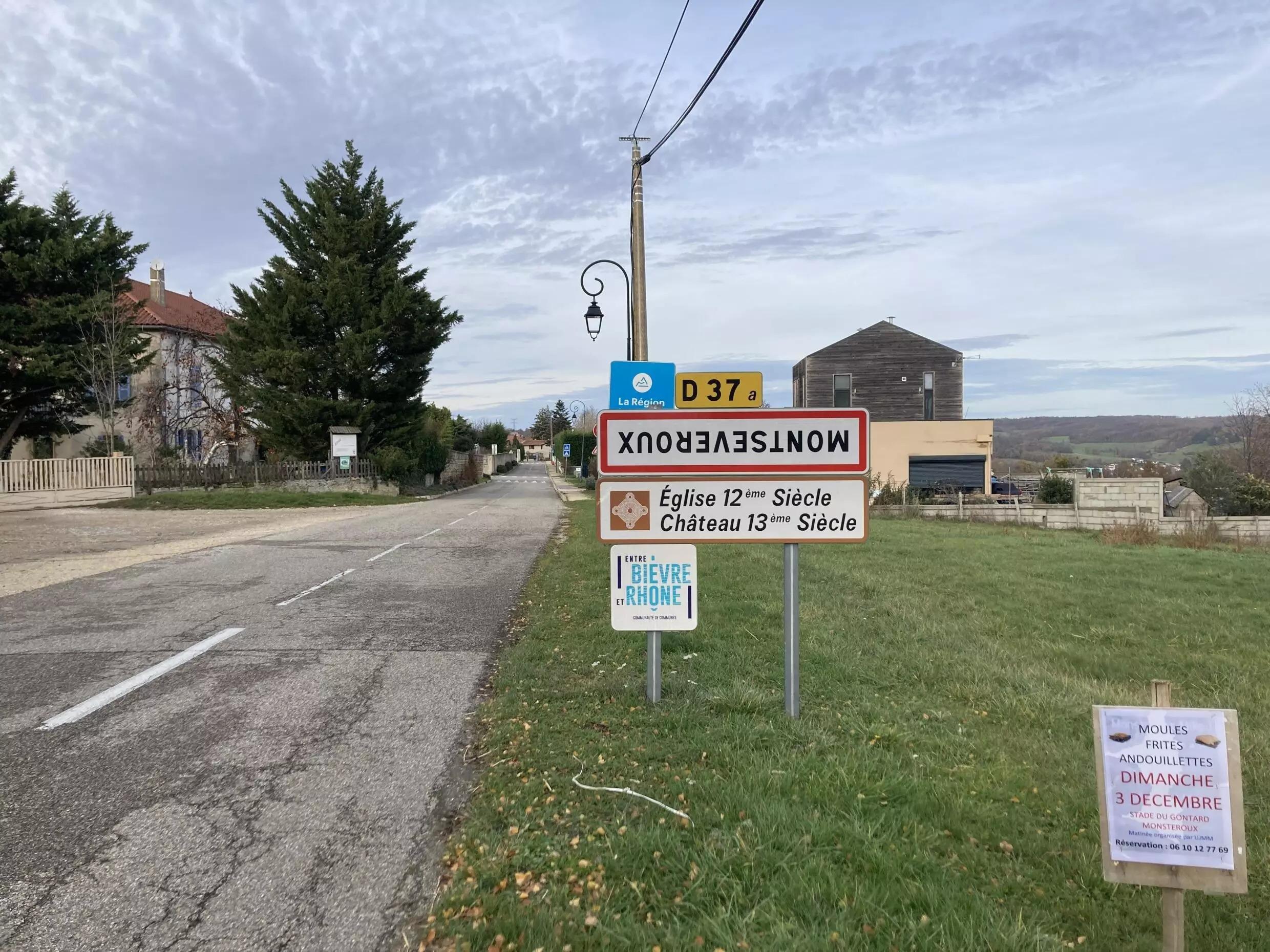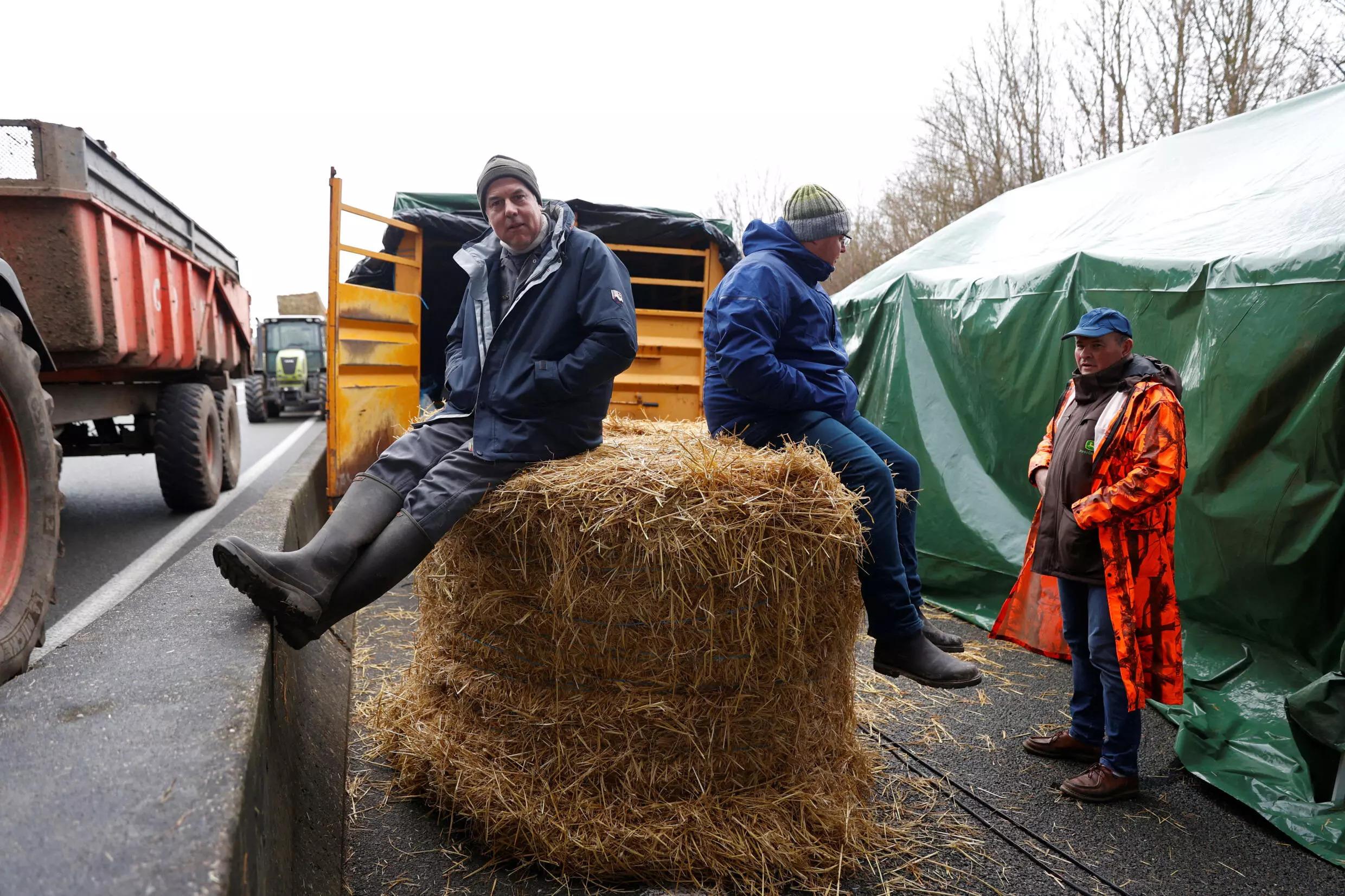Why are French farmers angry and who will reap the rewards?
French farmers are blocking motorways for the second week and they show no sign of backing down. The French news outlet RFI looks at what's fuelling the anger, and its impact on France's political landscape in the lead up to European elections.
The growing discontent among France’s farming community became noticeable in December last year, when signposts in villages and small towns in many parts of the country were turned upside down.
It was a playful way of illustrating a certain incoherence in agricultural policy: farmers were being asked to respect ecological norms while also producing more to boost France’s food sovereignty.
That cheeky form of protest has mushroomed into a display of might, with farming unions organising blockades of motorways – mainly in the south of France.
Now into their second week, the FNSEA, France’s biggest farming union, says it won’t stop until it receives “concrete responses” to the industry's problems.
The government agreed in December to postpone planned increases in the price of agricultural diesel and fees for water consumption, but grievances over unwieldy red tape, unfair competition from foreign imports and "excessive" green regulations remain.
The FNSEA says outrage is largely being fuelled by the government’s recent move to fight inflation by encouraging retailers and food giants to cut prices. It's led to farmers being paid around 10 percent less for their produce, particularly meat and dairy.
“Prices are a priority,” says Patrick Bénézit, head of the FNB cattle farmer union, and FNSEA vice president – adding that a 2018 law on guaranteeing fair prices for producers "must be respected".
Green Deal pressure
The French protests were a spillover from neighbouring Germany and the Netherlands.
Dutch farmers took to the streets over a decision to slash the country’s cattle breeding industry, while German famers were riled over reductions to subsidies on agricultural diesel.
Both cases related to regulations imposed by the EU as part of its Green Deal to drastically reduce carbon emissions.
French farmers have opposed EU bans on pesticides, driving tractors through the streets of Paris last February in protest. A long-awaited ban on glyphosate, however, was postponed following opposition from some EU countries.
Former FNSEA head Christine Lambert, now in charge of the COPA farming lobby in Brussels, says there is no question that farming needs to take a more environmentally friendly direction.
“We have to produce more, better and with less impact," Lambert says. "We will work out how to do this, but not if it's a forced march and with no extra means."

Climate impacts
It’s no coincidence that the protest movement began in France's south-west region of Occitania – “where farmers’ incomes are the lowest”, says sociologist François Purseigle, from Agro Toulouse University.
The author of a book on agriculture in France, Purseigle insists the image of farmers as opponents of ecological transition is misguided.
“They’re actually on the frontline of the climate crisis. They’ve suffered drought; their vines have been burnt; they’re struggling to work out how to farm with limited water supply,” he says.
Occitania was also the first region to promote organic farming, but a drop in consumer demand saw the collapse of many farms.
"They wanted to respond to demand, but it's no longer there," Purseigle says. "That's a lot to have to cope with."
The problem, he adds, is that unlike Spain, which provides its farmers with free support to adapt to the challenges of the ecological transition, France is offering no similar back-up.
Courting the farmers
The number of farms in France has declined dramatically in recent years and farmers now represent less than 2 percent of the French electorate.
Despite this, they manage to punch above their weight.
"They have the tools and professional organisations – banks, chambers, cooperatives – to represent them and amplify their demands," Purseigle says.
They also enjoy broad public support, based on a "kind of fantasy" over what farming in France is. People have a filial, almost physical, relationship to the industry.
Farmers, therefore, tend to be courted across the political spectrum.
The government says it understands their grievances, and Prime Minister Gabriel Attal has promised to respond fully by the end of the week.
Following the death of a farmer at a roadblock in the south-western Ariege region on January 23, Attal said “all of rural France" was grieving.

The unrest is Attal’s first major challenge since taking office and comes at a sensitive time as campaigning heats up for the European Parliament elections in June – with Marine Le Pen’s far-right National Rally (RN) party leading in the polls.
The RN hopes to cash in on the farmers’ discontent, with Le Pen denouncing “Macron’s Europe”, which she warns is seeking “the death of our agriculture”.
Purseigle is not convinced that unhappiness over EU regulations will translate into votes for the far right. Apart from in winegrowing regions where the RN has some elected officials, he believes farmers are more likely to abstain from the polls.
“French farmers tend to be pro-European. They need migrant labour to harvest their salads and tomatoes. They get big EU subsidies and they want to export," he says.
No 'green vests'
There’s been talk in French media over a nascent “green vest” movement – the farming equivalent of the "yellow vest" protests of 2018-2019 that rocked Macron’s first term.
“The notion of 'green vests' is a media creation,” Purseigle says, highlighting the fact the farmers’ movement is "far more structured" than the yellow vest protests.
France’s agricultural sector is a kaleidoscope of different structures that includes both individual producers and family-run farms as well as large enterprises and industries. This means vast differences in incomes and production methods.
That diversity also makes it difficult for authorities to respond given that "no one measure will satisfy everyone”, Purseigle says.
The government is under pressure to resolve the crisis ahead of next month's annual International Agricultural Show in Paris – when rural France takes up residence in the capital and shows off what it does best.
A display of anger and revolt would not go down well.








